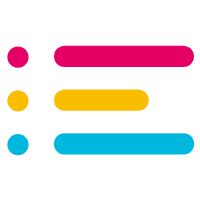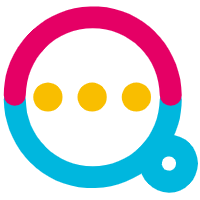
Applications and Ecology
PlatON is working to apply the results of this established research area to new areas such as finance, medicine, smart cities, and IoT.
AI Oracle
Oracle in blockchain is a kind of middleware that connects the blockchain to external resources. Existing blockchain oracle still mainly collect data from other data sources and map them to smart contracts (e.g. price feed), or allow smart contracts to call external APIs to provide more functionality, but are still limited to external data acquisition interfaces.
Due to the difficulty of AI models to give deterministic results (e.g. face recognition) and the high complexity of the algorithms and the large size of the data, smart contracts cannot run AI models internally, and integrating AI models into smart contracts is almost impossible.
With the oracle, AI services in the PlatON network can be aggregated and connected to smart contracts. On PlatON, an AI oracle is easy to implement.
- Provides an open AI marketplace where users can access, find and select from a growing number of AI algorithms and models from different vendors around the world.
- Testing, evaluating and rating AI services based on machine learning ensures that AI services can be trusted and secure.
- Using PlatON’s SDK, oracle agents can be easily implemented to intelligently search for access to AI services in the network.
Here are a few use cases for using AI to make smart contracts smarter.
- Identification based on biometric methods, such as face and fingerprint,users can use biometrics to control accounts instead of using private keys.
- Automated trading based on price prediction and AI strategies, strategy is optimized based on the metric of ROI, Risk score, and Price prediction。
- deciding a loan based on users’ credit score.
- help check if a product is fake in the supply chain.
Game
With the development of game industry and people’s pursuit of immersive experience or personalization, more and more games adopt “open” setting, players have the freedom to create unique content, which is actually the private property of players, and some games also explore the use of players’ own private data (such as human body data, geographic location, social relationship, etc.), and serious games even blur the boundary between games and general apps.
The trading of private virtual goods, the training of privacy-based game intelligence, the mining of real data, etc., all require a safe and secure technology or mechanism, such as PlatON, which can bring more innovative gameplay and effective operational tools to games based on PlatON.
- Unification of in-game virtual currencies, even across games
- Unique and personalized virtual asset trading
- Distributed game data collection and bot AI training
- Cross-game operation data analysis
- Cross-game payment habit analysis
To give a specific example of privacy AI in games.
A location-based AR game, similar to Pokemon, where players can catch different elves or get different props in real places, with the difference that these places can be a variety of real businesses, such as a Hunan restaurant can provide fire-based elves, a northeastern restaurant may have elves with freezing skills, a sportswear store can buy suits, a lifestyle supermarket can provide some consumable supplies, the playground can provide brush boss copies, and so on. If you spend real money in the store (sweep for the merchant-generated QR code), then you can improve the capture probability or the attribute value will be slightly higher or cheaper. Even the same neighborhood merchants can join forces to provide a smooth playing and upgrading experience for players, attracting more and more distant players to run over, merchants also increased customers and consumption.
In this game, sprites and props can be more than just system-generated, and real-world merchants can influence their various attributes. For merchants and game makers, both are looking for their potential customers, game makers want to find possible players inside the merchant’s customers, and merchants want the game to direct players over to increase consumption. Obviously, both parties want to cooperate but do not want to take out their customer information.This is where privacy AI comes into play. Merchants and game vendors can jointly train a model and guide and recommend players based on the model’s reasoning (based on various factors such as physical distance, freshness, revenue, “chance” players, etc.), which can be updated and upgraded with real player feedback.
Biomedical

PlatON, as an AI infrastructure, provides a credible data collaboration environment for hospitals, pharmaceutical companies, various research institutions, etc. It connects different types and fields of activities, research fields, operation modes and data streams to form a large-scale data aggregation effect, maximizing the value of pharmaceutical data sets, including clinical trials, medication use, electronic health records and patient genomics data, etc. It forms a data analysis and mining system for pharmacogenomics, disease genomics, network pharmacology, protein structure simulation and other technical means, thus accelerating the process of new drug discovery and R&D.
Financial Risk Control

Through privacy-preserving computation technology, operators, Internet platforms, insurance agencies and other multiparty data through the dense state way to open more wind control class private domain data tags and banks to collaborate, support financial risk control business, realize the whole process of monitoring before, during and after credit, and improve the timeliness of wind control. Through the Private Set Intersection and private joint query, it is convenient to understand the comprehensive credit risk of customers statistically, and not to disclose the customer ID and private domain data information of any party, forming a joint risk prevention and control joint ecology.
Smart City
After more than 50 years of development, the Internet has gradually evolved from a mesh-like structure to a brain-like model. In the 21st century, billions of human group intelligence and tens of billions of machine intelligence will form a brain-like complex intelligent giant system with human-machine collaboration through the Internet brain architecture. Using PlatON’s autonomous collaborative AI network, the intelligent collaborative network formed by the mixture of cloud group intelligence and cloud machine intelligence in the Internet brain architecture can be realized in figure 15.

To give a specific scenario, in a smart city, smart mobility solutions can be provided in downtown commercial properties using blockchain-based multi-agent artificial intelligence digital services.
Take the example of parking a car. In a smart city, an autonomous agent in your car will search and communicate with a parking agent to find the closest available parking space to your destination, reserve it for you, and then guide you to it. When you return to drive away, your car agent automatically checks out, calculates the parking fee, and pays for you, eliminating the hassle of parking tickets.
Using AI agents can optimize resource use and reduce a city’s carbon footprint, and we predict that large-scale implementation of smart city infrastructure will result in a reduction of 34,000 tons of CO2 emissions per year.
Publisher:PlatONWorld,Please indicate the source for forwarding:https://platonworld.org/?p=5042




